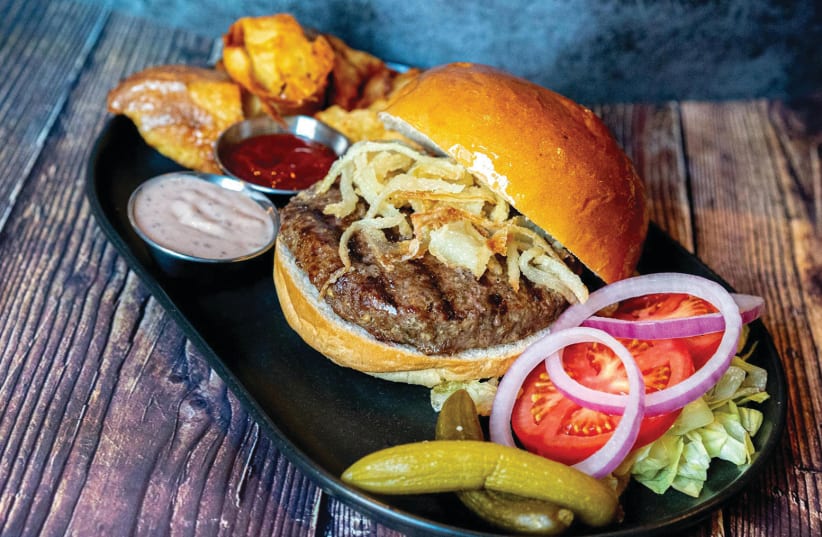In fact, food is an expense, but what kind of expense? That is what the court discussed in the Amdocs case (Amdocs Israel Ltd Vs Netanya VAT Director, 22467-09-17, issued December 17, 2020).
What’s the beef?
An army marches on its stomach, so does the business sector, especially hi-tech. Work proceeds at a dizzying pace around the clock and going out for a sandwich is often a non-starter. So many Israeli workplaces provide in-house food facilities, from a well-stocked kitchenette and fridge to a dining hall.
The problem is that VAT Regulation 15A says that businesses cannot recover input VAT on certain expenses for employees.
These expenses include: “an asset or a service, such as a meal, accommodation, a gift or entertainment, intended for their enjoyment, their use, their welfare or for the benefit of the employee or his family.” An employee for these purposes includes an owner or a director. The intention may be to deny VAT recovery regarding employee fringe benefits, but this is not stated in the VAT Regulations.
Facts of the case
Amdocs is a publicly traded hi-tech group. At an office in Israel it has an extensive dining area where meals are prepared and served daily to thousands of employees.
It has kitchens with equipment, ovens, pantries and cold storage facilities, dishwashers, and other equipment needed, as well as dining halls where the employees sit and eat.
The main issue
It was agreed that input VAT is not recoverable on the caterer’s invoices, kitchen equipment and dining hall furniture. But does “meal” in VAT Regulation 15A also include a pro rata portion of rent and other expenses attributable to the dining area such as electricity, water, management charges and city taxes?
The taxpayer thought not, especially if the dining hall area is also sometimes used for a mixed purpose, such as rest or cultural enrichment.
The judgment
The court explained that the aim of Regulation 15A is to uphold the general principle that VAT should be borne at the stage of the final consumer, namely the employee. In this case, the employer pays the VAT by not recovering input VAT on meals consumed by the employee.
But in the court’s view, the location put at the employee’s disposal to eat his meal is not part of the “meal”... nor is it a benefit for the purposes of Regulation 15A.
What about cleaning? The Israeli Tax Authority cited other cases where input VAT recovery was denied on cleaning expenses. The judge agreed with this because cleaning services of a dining hall are an integral and necessary part of employee meals.
Therefore, an input expense connected exclusively to meals supplied by an employer to its employees – ingredients, kitchen equipment, cooking and baking, tables, chairs, cutlery, cleaning the tables and floors – are an integral part of the service known as a “meal” for the purposes of denying VAT recovery.
But that is not the case regarding the location where the meal is provided, therefore, VAT on the location expenses should be recoverable.
Tax Authority error okay?
It seems the ITA tried to overturn an “assessment agreement” already reached with the taxpayer by claiming it was an error.
The company could have charged VAT to the caterer on the use of the dining hall. But the court ruled that agreements should be honored. If the ITA wanted to collect VAT from the caterer rather than the employer, it should issue an assessment to the caterer. But the caterer would still claim a VAT recovery.
Food for income tax purposes
The Amdocs case related to VAT. On the income tax side, the tax regulations allow a business to deduct 80% of the cost of providing light refreshments at the place of business. Light refreshments are defined as “hot or cold drinks, cookies and so forth.” Anything else is a matter of interpretation and the ITA sometimes seek to impose monetary limits.
Any excess is generally treated as a fringe benefit allocable to employees and taxable at their marginal tax and national insurance rate – up to 50%. Entertainment (restaurant meals, etc.) in Israel are expressly not deductible, except for the reasonable cost of entertaining a person from abroad.
As always, consult experienced tax advisers in each country at an early stage in specific cases.
leon@h2cat.com
The writer is a certified public accountant and tax specialist at Harris Horoviz Consulting & Tax Ltd.
